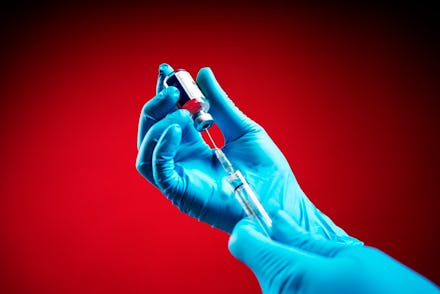We appear to be a step closer to a coronavirus vaccine

The race for a coronavirus vaccine is in full throttle. Pharmaceutical companies have been hard at work in labs around the world since the beginning of the pandemic, but according to findings published today in the medical journal, The Lancet, AstraZeneca’s new COVID-19 vaccine shows promise.
In a study consisting of 1,077 participants, the vaccine was given to 543 volunteers at The University of Oxford, while the rest served as a control group. A few dozen of them were then tested for neutralizing antibodies — proteins that fight the virus, reported Business Insider. Of the 35 participants, 32 still had the proteins a month after receiving the vaccine. As part of the study, 10 of the 543 participants who received the vaccine were also given a two-dose regimen that included a booster shot, and all ten of those people had the neutralizing antibodies, which experts say helps protect the body from the virus, reported CNBC.
Vaccine researchers say that although ten is too small a group to draw firm conclusions about this new two-step approach to vaccinating against COVID-19, the findings made them hopeful. "We saw the strongest immune response in participants who received two doses of the vaccine, indicating that this might be a good strategy for vaccination," Andrew Pollard, co-author of the trial, told Business Insider. And although 70% of the volunteers experienced fatigue and 68% had headaches, the researchers reported no serious side effects. Most of the volunteers were healthy white people in their 30s, with a median age of 35.
"There is still much work to be done before we can confirm if our vaccine will help manage the COVID-19 pandemic, but these early results hold promise," University of Oxford Professor Sara Gilbert told Business Insider. Along with Pfizer and Moderna, AstraZeneca have all been successful in producing vaccines that merit further testing, which means that they seem to be generally safe for healthy individuals.
While this is all exciting, I am starting to have a bit of vaccine optimism fatigue. It’s beginning to feel like corporate pharmaceutical companies are more interested in creating buzz around the potential for their products than they are in helping the folx who are being disproportionately affected by COVID-19 infection. Someone just ping me when there’s a vaccine that works and that everyone can afford.